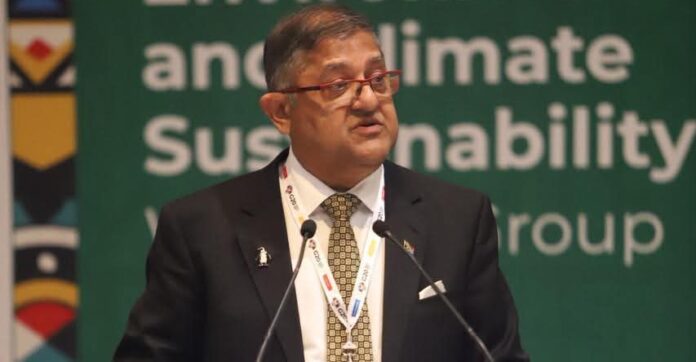South Africa has called on wealthy nations to stop loading developing countries with loans disguised as climate aid, warning that the next phase of global climate action must be built on grants rather than debt.
Narend Singh, the deputy minister of forestry, fisheries, and the environment, told world leaders over the weekend in Toronto, Canada, that an ambitious agreement that eliminates the need for borrowing by poorer countries to combat the effects of climate change must be reached at the COP30 summit.
“The new goal must ensure scaled-up, predictable, grant-based, and non-debt-creating finance, underpinned by transparency and accountability,” Singh said.
He was addressing the Ninth Ministerial on Climate Action, where he stressed that finance, technology and capacity building “remain the cornerstone for enabling effective and equitable climate action”.
Singh said the global landscape of support for developing nations must be strengthened to match the scale of the crisis and to address their differentiated needs.
He also urged richer countries to ensure that public finance attracts private investment without creating new liabilities.
Turning point for delivery
Research by the International Institute for Environment and Development shows why his warning carries weight: 58 of the world’s poorest countries spent about $59-billion (R103-trillion) repaying debt in 2022 while receiving only $28-billion in climate finance.
Singh added that the next decade must be about action, not experiments, stressing that it “must focus on practical technology transfer, particularly for renewable energy, adaptation technologies, and climate-smart agriculture.
“We must move beyond pilot projects to scalable deployment in developing countries.”
He said South Africa’s Just Energy Transition Partnership had shown that concessional, flexible, and blended finance aligned with national priorities could link climate action to social and economic transformation—provided it avoids debt dependency.
“COP30 must be a turning point for delivery, signalling that the promises of the Paris Agreement are being fulfilled through a robust support framework that empowers all countries to act, particularly those most in need,” he said.




